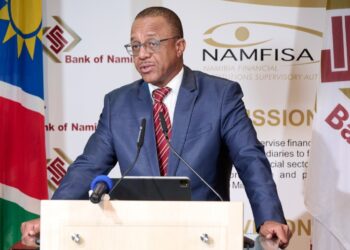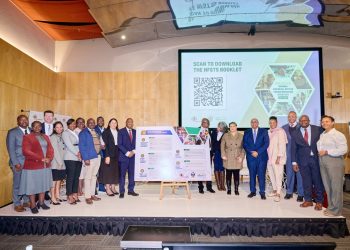
The City of Windhoek cumulative losses for the past 10 years now amount to N$3.2 billion after it recorded a N$480 million loss for the 2021 financial year, latest figures have revealed.
Cost drivers for the city according to COW Management Committee Councilor, Jurgen Hecht include the Municipality bus services, which incurs N$ 70 million in losses and has an existing pool of 50 bus drivers each earning N$ 600 000 per annum, an excessive remuneration policy, post-retirement health care benefits, staff vehicle finance and staff loans.
“Only 25 to 30 bus drivers are required daily, the remaining 20 bus drivers are on stand-by. This is simply not feasible, considering the present financial dilemma. Currently 593 retirees enjoy this health care benefit – this presently costs COW N$2,3 million per month – approximately N$ 4 258 per month per member. It is no secret that COW pays some of the highest salaries in Windhoek, if not in the entire country. COW employees in general earn between 30 to 40% above market rate salaries and this fact poses in itself a major problem to its cost structure. City Police employees earn approximately twice as much as any Nampol staff member of any equal rank.,†he said.
“The 2020 audit report by the Auditor General states “that there is a material uncertainty on the commercial insolvency of COW in the foreseeable future, as at 30 June 2020, COW’s current liabilities of N$ 2.3 billion exceed its current assets of N$ 1,64 billion by N$ 1,259 billion. Thus, there is commercial solvency risk on the ability of COW to settle its creditors in the normal course of business,†he said.
“At 30 June 2020, there was thus a shortage of N$ 1,259 billion to cover the city’s immediate expenditure; in view of the 2021 draft financials, this shortage will be N$1,1 billion for the financial year 2021.â€
Hecht said CoW was currently utilizing a N$200 million overdraft facility to meet its day-to-day operations.
“Last week we were again very close to the N$200 million limit. This N$200 million overdraft facility is presently COW’s absolute lifeline!†he said.
“COW’s monthly cash inflows vary from N$ 350 to N$ 450 million and NamWater, NamPower & Salaries of N$50 million, N$130 million & N$135 million respectively are the biggest monthly costs of approx. N$300 million before any other running expenses are considered. It is thus very evident that, apart from any exceptional land sale revenue, COW is stuck in a cash flow dilemma for which no financial strategy and remedy has been found over the past few years.â€
As of 31 March 2022, Hecht said CoW’s total outstanding debtors amounted to N$1,2 billion, of which N$929 million was in arrears, with pensioners owing N$95 million, normal clients & businesses N$120 million, State Owned Enterprises and Government owing N$78 million.
“The historical poor management of cash collections is an integral part of COW’s cash flow dilemma. Total Impairments (provision for bad debts) of N$701 million were provided on 30 June 2020 – with an efficient collection system which could have been largely avoided. Bad debts are inevitable in any business, but in the case of COW these are completely out of proportion. This implies that COW’s management is not able to collect its own revenue,†he said.
Cow is proposing to sell some of its land back to the government as part of efforts to generate revenue.
“One of the solutions considered was to sell undeveloped (virgin) land back to the Government for an amount still to be negotiated. If this materializes, then COW would be selling its “golden eggsâ€/sacrificing future profitable land sale proceeds & development and future availability of land to its residents to remedy a current cash flow & solvency issue due to inherent mismanagement over many years,†Hecht said











